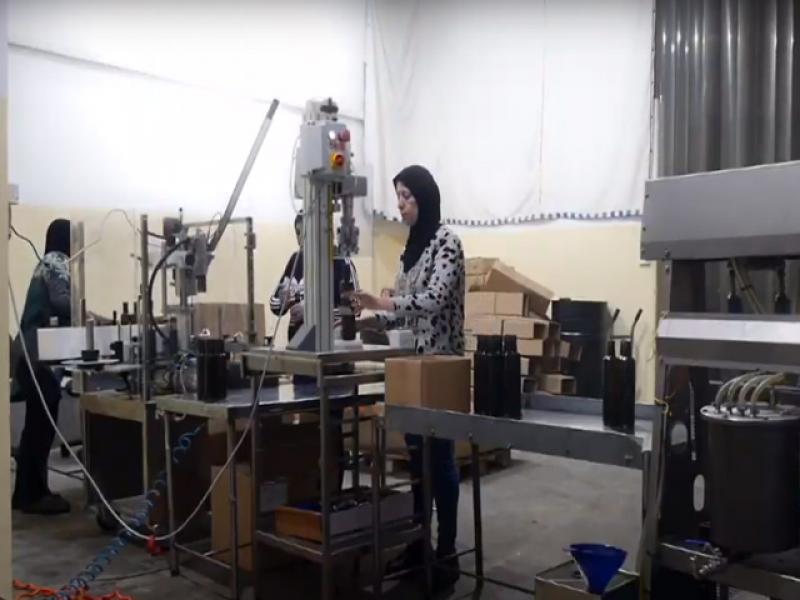
A new report from the Innovation Authority sheds light on the concerning trend of Israeli high-tech professionals leaving the country, revealing significant changes in the industry over the past two years. The State of Employment in High-Tech 2025 report paints a troubling picture of the industry's struggles, particularly in light of recent geopolitical and economic challenges.
For the first time in more than a decade, the Israeli high-tech sector recorded a decline in the number of employees. The report, published today, highlights a growing exodus of high-tech professionals from Israel, especially following the outbreak of the war in October 2023. Between October 2023 and July 2024, approximately 8,300 high-tech employees—about 2.1% of the workforce—left the country for one year or more.
The trend is accelerating, with the monthly departure rate rising significantly. While the average number of departures between May and December 2022 was 479 per month, which increased to 571 in 2023. Between October 2023 and July 2024, the rate spiked to an average of 826 departures per month. In October 2023, the figure reached a peak of 1,207 high-tech workers leaving the country—almost 2.5 times the monthly average before the war.
Innovation Authority Director General Dror Bean expressed concern, stating, “This is a red light and we need to think about how to stop this and how to bring back those who have left.”
First Decline in High-Tech Employment in 10 years
The report reveals a 1.2% drop in high-tech employment in 2024, with approximately 391,000 people employed in the sector—about 5,000 fewer than in 2023. This marks the first significant decline in the number of high-tech employees in Israel in at least a decade. The slowdown in employment growth is being attributed to reduced capital raising in 2022 and 2023, which limited hiring opportunities in the sector.
However, there are signs of recovery, with increased capital raising in 2024 and a rise in open high-tech jobs to 17,000 by December 2024. Despite this, the trend of stagnation in high-tech employment growth since 2022 remains a concern.
Employ More People Abroad Than at Home
In an unexpected finding, the report reveals that Israeli high-tech companies now employ more people abroad than in Israel. For the first time, the scale of employment outside Israel has been measured. Israeli high-tech firms employ around 440,000 workers overseas, compared to about 400,000 in Israel.
Private Israeli high-tech companies employ about 430,000 workers globally, with around 190,000 based in Israel and 240,000 abroad. Public companies employ about 260,000 workers, with only 60,000 in Israel. The figures indicate the growing global footprint of Israeli high-tech companies as they expand their operations overseas.
Senior Roles and R&D Dominated by Israel
The report also reveals significant differences in job distribution between Israel and the rest of the world. While Israel maintains a strong presence in senior management (64% of senior positions are held in Israel) and R&D (52% of R&D positions are in Israel), sales and marketing roles are increasingly being filled abroad. Only about 25% of sales and marketing positions are located in Israel, with 75% of such roles based overseas.
Bean explained that this shift is due to the global nature of high-tech business. “When you sell in global markets, you need a significant presence in those markets for sales, marketing, and customer support,” he noted. Additionally, high labor costs in Israel, especially for engineers, have led companies to hire more workers in countries like India, where engineering salaries are significantly lower.
Looking ahead, Bean does not foresee a major impact from new tariffs on Israeli high-tech exports. He estimates that about 70% of Israeli high-tech exports are software services, which are unlikely to be affected by the tariffs. However, the report does caution that industries producing tangible products, such as food technology (foodtech), could face challenges, with Israeli companies potentially relocating production to the United States to avoid tariffs.
A Critical Time for Israeli High-Tech
The findings in the State of Employment in High-Tech 2025 report underscore the challenges facing Israel’s high-tech sector. The exodus of skilled workers, coupled with a slowdown in employment growth and increasing competition abroad, presents a critical moment for the industry. The Innovation Authority and industry leaders will need to address these issues to ensure the continued success and growth of Israel's high-tech sector in the coming years.
Articles Archive
Top Categories
ABOUT IFI TODAY

Lorem ipsum dolor sit amet, consectetur adipisicing elit, sed do eiusmod tempor incididunt ut labore et dolore magna aliqua. Ut enim ad minim veniam, quis nostrud exercitation ullamco laboris nisi ut aliquip ex ea commodo consequat. Duis aute irure dolor in reprehenderit in voluptate velit esse cillum


Comments